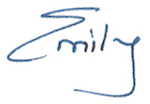Dear Parents,
These are complicated times, and there is no dearth of people telling schools what students need to learn in order to be successful adults in the new world that is coming. (Many assume what success means without really defining it.) Recently, the College Board decided that the two “codes” that students need to know are the Constitution and computer coding. Although I would argue that the College Board is responsible for much of what is wrong with American education, I agree that these are both of great importance, and both are embedded in Putney’s program. Last spring, The Wall Street Journal published an article on how to “robot-proof” your children, making them employable in the new world. The WSJ recommended coding also, along with arts education, interdisciplinary learning, emotional intelligence, and what they call “self-learning,” by which they mean self-directed learning. Who knew the WSJ was so progressive!
One passage from the WSJ article reads “Both the traditional school system and a lot of parenting advice frame child discipline in terms of compliance and rule-following. But rule-following is exactly where robots excel, and where even the most disciplined worker is likely to fall short in comparison. So encourage your children to question rules and think independently—because that fosters the kind of thinking that robots can’t master. Yes, it makes parenting a bit harder in the short term.”
At Putney, we don’t think of education primarily in terms of employability, although certainly, our graduates are highly employable. This may be precisely because we teach students to question, and cheerfully endure the results when they are still learning how to do this well. We have many graduates working in Silicon Valley, and one alumnus there surmised that it is Putney’s “hacker culture” that makes this so. We don’t lay out all the right lego pieces in front of our students, or even always give them the picture on the box before they start the puzzle. They need to learn to reach out for what they need, and imagine what might be.
The critical balance for us is to have just enough structure and compliance to be able to create an atmosphere in which creativity and growth can occur. If schools lock everything down so that students feel they are merely following rules and doing what they are told, the questioning goes underground and becomes darker and more anti-social. But if we allow everyone simply to follow their own whims, they don’t learn to put others’ needs ahead of their own, and what might be creativity becomes self- indulgence.
We are already starting the process of electing and selecting student leaders for next year. We regard the curriculum here as everything we do, including all the ways in which students have to figure out, individually and collectively, how to be part of running the community. We had a leadership fair last week, at which each of the leadership groups had a table in the KDU, and students who were interested in those positions could go talk with the incumbents. This makes every student think hard about what leadership is, what skills they have, and what skills they want to develop. Aspiring leaders must come to terms with the fact that students who have been urged to think independently will challenge them as well, and realize they need to learn how to lead rather than merely insist. I don’t think you can teach leadership in a classroom any more than you can teach skiing in a ski lodge, so we as adults are patient as they learn it. I encourage you to talk with your child about whether they are interested in being a student leader and explore their ideas and motivations. Some are clear they want to remain private citizens, and there is no shame in that.
As I write, students are assembling for our annual Snow Ball. They have been decorating all afternoon and the KDU looks gorgeous. The sartorial theme is the 1970’s. It is a little weird to see kids trying to dress up like the historical period of my own high school years!
Best to you all,

Emily H. Jones
Head of School


